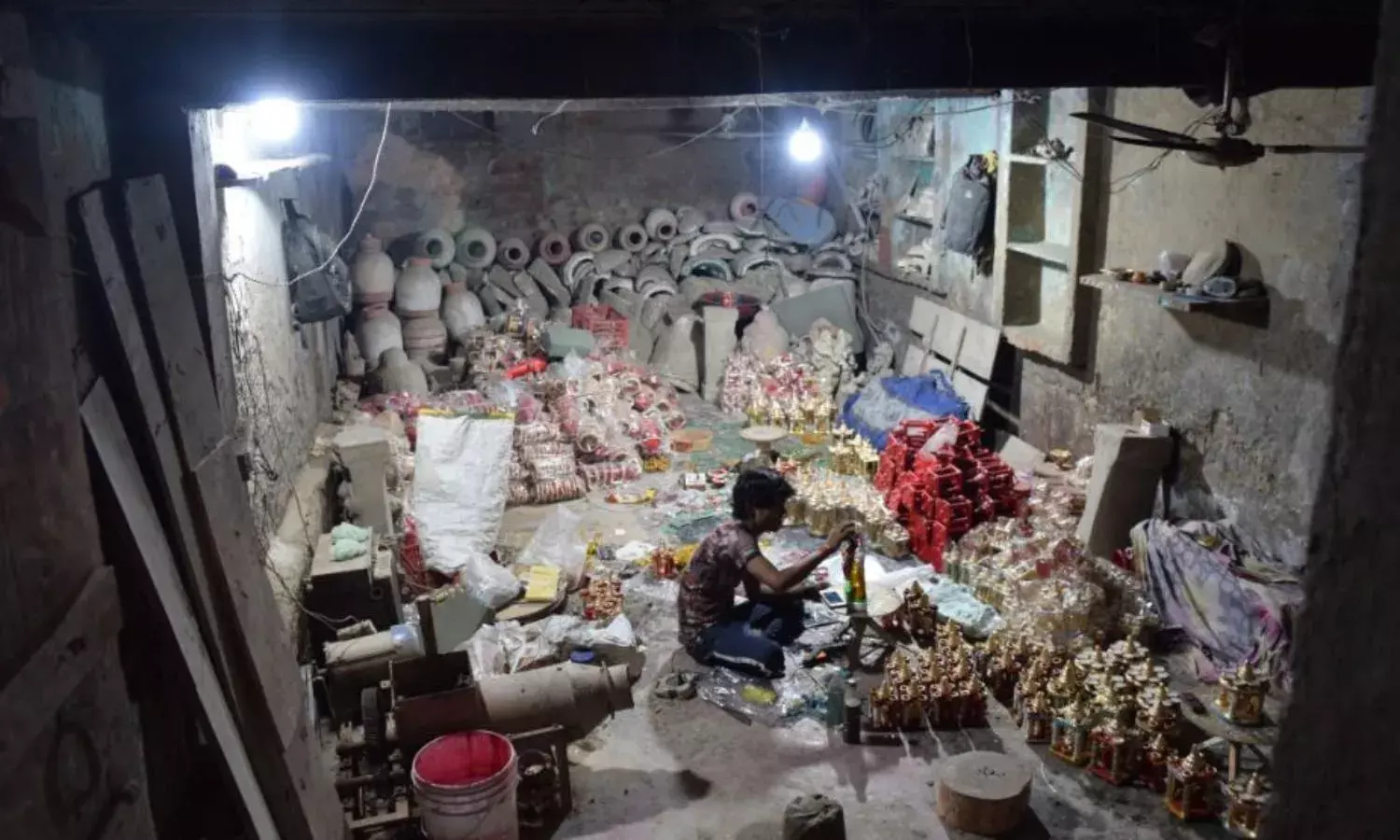Asia’s Biggest Potter’s Colony is Being Lost to Claims of Pollution
Big business gets away, small businesses and consumers suffer

NEW DELHI: Kailash, 38, stands at his small shop selling diyas and idols of various Hindu gods with gloom on his face. Kumhar Gram, where he works, faces clouds of uncertainty and fear. Kailash is one of the 400 potters awaiting the Supreme Court’s verdict on the fate of Asia's biggest potter colony.
“Alleging the use of plastic and rubber for fuelling furnaces and causing pollution, the National
Green Tribunal slapped a closure notice on these furnaces in 2017. The order was issued under the provisions of the MC Mehta Master Plan. The case went on in the NGT for some years before being referred to the Supreme Court last year,” says Harikishan, the village pradhan.
“The hearings haven’t started yet,” he adds. A National Award winner who has travelled overseas, teaching his pottery-making skills to others, Harikishan believes the legacy is dying slowly. “On one hand our prime minister urges us to protect the rich culture of the country, on the other hand he does not support it.”
He claims the case has been built on a “false report” framed by the village committee in adjacent Bindapur. The NGT did not cross-check or verify the report, Harikishan says, which gives him hope of winning the case in the Supreme Court.
Advocate Sunil, the lawyer appearing for the potters in the SC, says the government should conduct a “proper inspection before taking any decision.” He denies the claim that tyres were burnt for fuelling the furnaces. “If we burn tyres, tubes, polythene and lubricants, it would be immediately evident. The utensils would turn black, have a foul smell and will not be sold in the market,” he says.
According to Sunil, the village committee of Bindapur has claimed that the furnaces here function at a temperature of 1600 degrees Celsius, which he says is practically not possible.
Another issue in the case concerns the status of these pottery units. The units which are supposed to be cottage industries are categorised as small/medium industries in the notice. But the potters do not fall under the relevant Clause VII of the Industry List of the Ministry of Corporate Affairs.
Late in September these potters held a demonstration in Jantar Mantar. Uncertain of their future, the potters demand an alternative. “My grandfather came from Haryana and settled here. From his generation till now, we are involved in this activity only. But the way things are turning out, it seems we have to go back,” said Kailash. Many other potters like him have no other source of income except their trade.
Rinki, 34, who received a National Award for a huge Aladdin Lamp he created, says “There is nothing left if the units are shut down.”
The unity of the colony is also at stake. The pradhan has suggested that they learn some other skills to support their lives if needed.
Around 22 furnaces have already been sealed by the Municipal Corporation of Delhi. Colony residents also contacted the potters of Vikas Nagar colony, where thirty furnaces have already been sealed. However, they did not get any solid response or support from them.
The fate of these potters now awaits the court’s verdict.
(Photos: Rashi and Ayesha Fatima)



